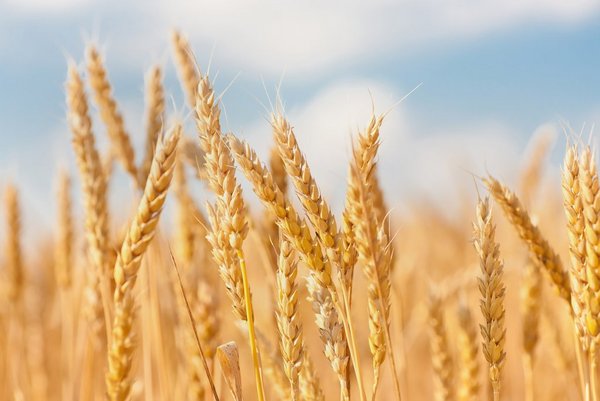- Share this article
- Subscribe to our newsletter
Tropentag 2022: Can agroecological farming feed the world?
Participants of this year`s Tropentag discussed the topic “Can agroecological farming feed the world?” at the Czech University of Life Sciences in Prague/Czech Republic, from the 14th to the 16th September 2022. The conference addressed issues of resource management, environment, agriculture, forestry, fisheries, food, nutrition and related sciences in the context of rural development, sustainable resource use and poverty alleviation world-wide.
Among the participants were post-graduate students, scientists, extension workers, decision-makers and politicians interested and engaged in agricultural research and rural development in transition and developing countries.
Tropentag 2022 was jointly organised by the universities of Berlin, Bonn, Göttingen, Hohenheim, Kassel-Witzenhausen, and the Leibniz Centre for Agricultural Landscape Research, reg. Ass. (ZALF), all in Germany, Ghent University (Belgium), the Czech University of Life Sciences Prague (Czech Republic), the University of Natural Resources and Life Sciences, Vienna (Austria), and the Council for Tropical and Subtropical Research (ATSAF e.V) in co-operation with the Fund International Agricultural Research (FIA) at Germany’s Gesellschaft für Internationale Zusammenarbeit (GIZ).
Intensive agriculture cannot be the answer
In his keynote speech, Harold Roy-Macauley, AfricaRice Director General / Managing Director Regions and Partnerships, pointed out how important it was to close the gap between science and development. To fight world hunger, intensive agriculture could not be the answer, he said. According to Roy-Macauley, there was a need to move away from conventional farming and add new practices, as new farming technologies could bring higher yields while needing less water. Increasing knowledge and evidence showed that agroecological farming can yield more than enough food for the whole world’s population, he said.
The consumer’s role in promoting agroecology
At the conference, participants discussed issues and questions concerning the topic Agroecology in 20 workshops. In the workshop Soil, plant health and consumer practices - how is it linked to agroecology?, for example, participants discussed the issue that agroecology has been mainly debated from the farmers perspective. Little is known about the consumer’s needs to promote and enhance agroecological transformation.
Participants were invited to play “The Happy Family Board Game”, designed as training and education tool for farming households in Uganda and Kenya. The game aims are to inform, discuss and identify potential solutions for transformation of farm systems towards sustainable farming and household decision-making practices. It is an open-source tool which was developed within the EaTSANE project (www.eatsane.de) and is currently being evaluated within an agriculture-nutrition project implemented by the Alliance Bioversity International and the International Center for Tropical Agriculture (CIAT) in Busia, Kenya.
Shedding a light on pastoralist
At the conference, the second edition of the Perspectives on Pastoralism Film Festival was launched and started touring across the globe. Over 200 million pastoralists are live in more than 100 countries world-wide. The Film Festival seeks to deepen the understanding of how rangelands and pastoralists contribute to culture, economy and environmental health. Films of multiple genres made by pastoralists and/or about pastoralists offer different insights into issues important to them.
This film festival is organised on behalf of the Coalition of European Lobbies for Eastern African Pastoralism (CELEP), primarily by the German Institute for Tropical and Subtropical Agriculture (DITSL), Agrecol Association for AgriCulture & Ecology, Vétérinaires Sans Frontières (VSF) Belgium, and the Centre for Research and Development in Drylands (CCRD) in Kenya.
Agroecology and plant protection
At the session Agroecology and plant protection participants highlighted the multiple opportunities for agroecological plant protection. In the case of controlling the devastating cassava brown streak disease (CBSD), planting of a healthy crop is key to managing CBSD, according to Samar Sheat from the Leibniz Institute DSMZ – German Collection of Microorganisms and Cell Cultures, Plant Virus Department. However, pending a “formal” seed system for cassava, in epidemic zones, there are no sources of healthy planting materials, and because of a shortage of planting material and neighbourhood exchange, human-assisted spread is a main driver of the pandemic. In 2017, an introduction farm (nursery) was created to receive materials from the laboratory in Germany, a cassava production and demonstration site was installed, and the researchers started to produce cassava while maintaining strict phytosanitary measures and monitoring. In March 2022, they harvested a high-performing crop from 1.5 ha, to provide virus-free cuttings to farmers’ associations and NGOs in South and North Kivu, Samar Sheat said.
Ines Lechner, editor, Rural 21
More information:
Tropentag website
Tropentag blog
Perspectives on Pastoralism Film Festival





Add a comment
Be the First to Comment